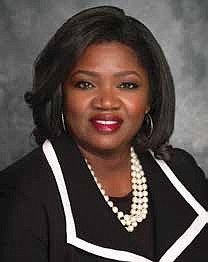Chicago 1919 Program Will Honor The 100-Year Anniversary Of Chicago’s Race Riot
Chicago 1919 Program Will Honor The 100-Year Anniversary Of Chicago’s Race Riot
BY KATHERINE NEWMAN
The Newberry Library, a world-renowned independent research library in Chicago, and its project partners recently announced Chicago 1919: Confronting the Race Riots which is a year-long initiative that will honor the 100-year anniversary of the Chicago race riots. The year of programming will begin Saturday, Feb. 23, at the DuSable Museum of African American History.
The Chicago 1919 project was made possible through funding from the National Endowment for the Humanities and is being coordinated by the Newberry Library in partnership with 13 other Chicago institutions, including the Chicago Urban League which was established in 1916 and supported Chicago’s African American population before, during and after the race riots of 1919.
“If you think about the Chicago Urban League and what our mission has always been, the organization was founded to really help African Americans who were migrating from the rural south to adjust to the city and find jobs and find housing and that was the role that the Chicago Urban League played. We were literally meeting people at the train station when they arrived and directing them and connecting them to services,” said Calmetta Coleman, vice president of External Affairs at the Chicago Urban League.
“The race riots began in the summer of 1919 when Eugene Williams, an African American teenager, drowned after being struck on the head with a rock thrown by a white assailant at a segregated beach. When police arrested an African American man instead of the perpetrator,
conflict erupted and lead to a week of violence that claimed 38 lives and underscored the deep-seated racial divisions within Chicago,” according to a press release from the Chicago Urban League announcing the Chicago 1919 project.
“One of the reasons that we all thought this was so important was because of how much the riots and the aftermath and the decisions that were made because of it have shaped what Chicago is today. A lot of the history that led to institutionalized and racist practices that made the city as segregated as it is, in terms of African Americans being identified in two parts of the city, grew directly out of the restrictive covenants that were in place and the red lining that happened after this race riot,” said Coleman.
There are currently 11 events scheduled to take place this year that will commemorate the history and impact of Chicago’s race riots and engage Chicagoans in conversations about race and racial discrimination in the city.
“From the Urban League’s perspective, obviously we want people to be aware of this history not just for history’s sake, but it will help increase their understanding of Chicago and how Chicago got to be and some of the conditions, particularly around something we talk about a lot as an organization, that led to really institutionalized discrimination an racism, frankly.”
For more information about Chicago 1919: Confronting the Race Riots visit www.chicago1919.org.
Latest Stories
- Reminder: Taxes are due December 15, 2025. Pay now to avoid late fees. Struggling financially? Our Payment Plan Calculator is a tool you can use
- TWO GOVERNMENTS TO FORMALIZE HISTORIC PARTNERSHIP IN ADDRESSING MENTAL HEALTH CRISIS DURING THE HOLIDAY SEASON
- Trump's Policies Negatively Target Women
- Assessor Kaegi, South and West Side Community Leaders Urge Legislature to Pass Property Tax Relief, Condemn Board of Review's Large Breaks for Downtown Commercial Properties
- State Farm and The Salvation Army Launch National Donation Drive to Support Families This Holiday Season
Latest Podcast
Stacy Davis Gates

